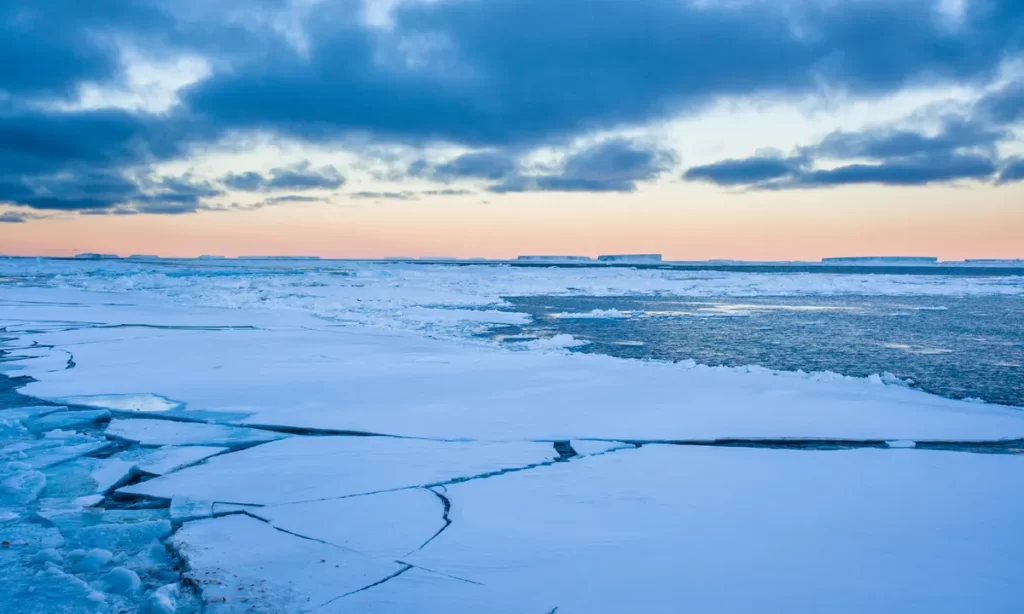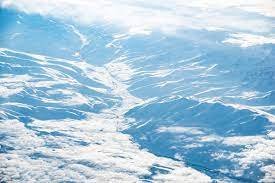Antarctica’s Sea Ice is at its Lowest Extent Ever Recorded
Antarctica, the southernmost continent, has been an area of immense interest for scientists and researchers due to its unique geographical features and crucial role in the Earth’s climate system. In recent times, a concerning development has emerged – Antarctica’s sea ice has reached its lowest extent ever recorded. This news has far-reaching implications for various sectors, especially for students preparing for government exams seeking positions such as teachers, police officers, banking professionals, railway personnel, defence officers, and civil services positions like PSCS to IAS. In this article, we delve into why this news is important, provide historical context, and present five key takeaways that students must know for their exams.

Why this News is Important:
1. Impact on Climate Change Mitigation: Antarctica’s sea ice acts as a significant regulator of the Earth’s climate by reflecting sunlight back into space, helping to maintain the planet’s temperature balance. With the sea ice now at its lowest extent, there are concerns about increased heat absorption by the dark ocean waters, potentially exacerbating global warming. This news underscores the urgency for policymakers to prioritize climate change mitigation strategies in their respective domains.
2. Environmental Consequences: The decrease in sea ice can have adverse effects on the polar ecosystem, impacting various species of marine life that rely on it for habitat and food sources. Students preparing for exams related to environmental conservation must be aware of the potential consequences and the need for sustainable policies to protect Antarctica’s delicate ecosystem.
3. Geopolitical Implications: Antarctica’s unique position as a continent governed by international treaties and agreements raises concerns about future geopolitical tensions. As the region’s accessibility increases with melting sea ice, various countries may vie for control over resources and territorial claims. Aspiring civil service candidates should be well-versed in international relations to tackle such issues diplomatically.
Historical Context:
Antarctica’s sea ice has been a subject of scientific study and observation for many years. Researchers have monitored its extent and thickness to better understand climate patterns and the overall health of the polar regions. Over the past few decades, there has been a noticeable trend of decreasing sea ice, and recent satellite data confirms that the current extent is at its lowest ever recorded. This development serves as a stark reminder of the ongoing effects of climate change on our planet.
Key Takeaways from “Antarctica’s Sea Ice is at its Lowest Extent Ever Recorded”:
| Takeaway | Key Point |
|---|---|
| 1 | Antarctica’s sea ice has reached its lowest extent ever recorded, raising concerns about climate change mitigation. |
| 2 | The decline in sea ice poses environmental risks and affects the polar ecosystem and marine life. |
| 3 | Geopolitical tensions may arise as the region becomes more accessible due to melting sea ice. |
| 4 | Economic opportunities and challenges may emerge in areas such as maritime transport and resource extraction. |
| 5 | The scientific research and exploration in Antarctica will face new challenges and possibilities due to reduced sea ice. |
Important FAQs for Students from this News
Q1: Why is the decline of Antarctica’s sea ice a matter of concern?
A1: The decline of Antarctica’s sea ice is a matter of concern because it can have significant implications on climate change, polar ecosystems, geopolitics, and economic opportunities. It may exacerbate global warming, impact marine life and habitats, raise territorial disputes, and create challenges and opportunities in various economic sectors.
Q2: How does Antarctica’s sea ice affect the Earth’s climate?
A2: Antarctica’s sea ice acts as a regulator for the Earth’s climate by reflecting sunlight back into space, helping to maintain the planet’s temperature balance. With the sea ice at its lowest extent, there are worries about increased heat absorption by the dark ocean waters, potentially contributing to global warming.
Q3: What are the potential economic opportunities resulting from the decrease in sea ice?
A3: The decrease in sea ice could lead to new economic opportunities in areas such as maritime transport and resource extraction. As the region becomes more accessible, there may be potential for increased shipping routes and resource exploration. However, these opportunities also come with environmental risks and challenges.
Q4: How does the decline in Antarctica’s sea ice impact the polar ecosystem?
A4: The decline in Antarctica’s sea ice can have adverse effects on the polar ecosystem. It may disrupt the habitat and food sources of various marine species that rely on the sea ice for survival. This can lead to imbalances in the food chain and pose threats to the overall health of the polar environment.
Q5: What role does international cooperation play in addressing Antarctica’s changing conditions?
A5: Antarctica is governed by international treaties and agreements, emphasizing the importance of international cooperation in addressing the changing conditions. As the region’s accessibility increases, it becomes crucial for nations to work together to protect the environment, manage resources responsibly, and avoid potential conflicts.
Some Important Current Affairs Links


















